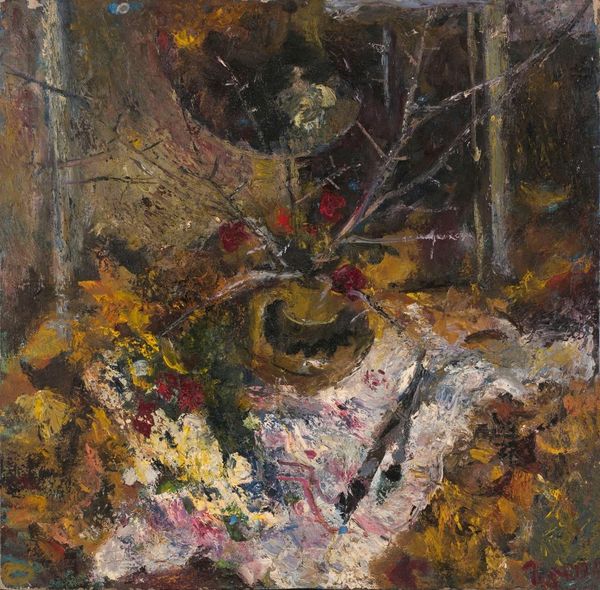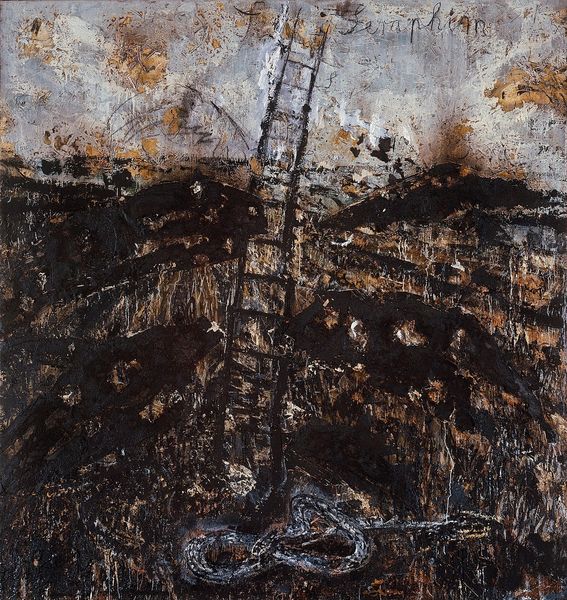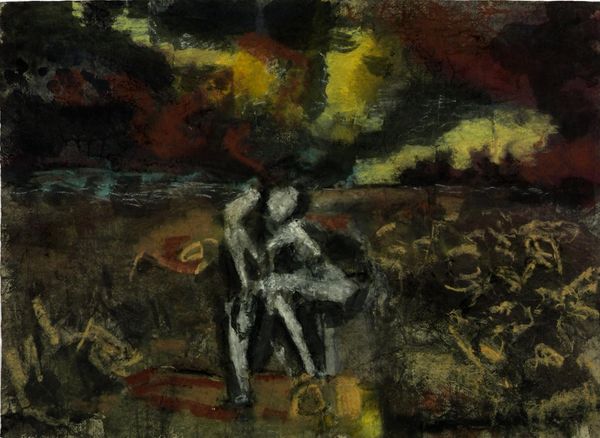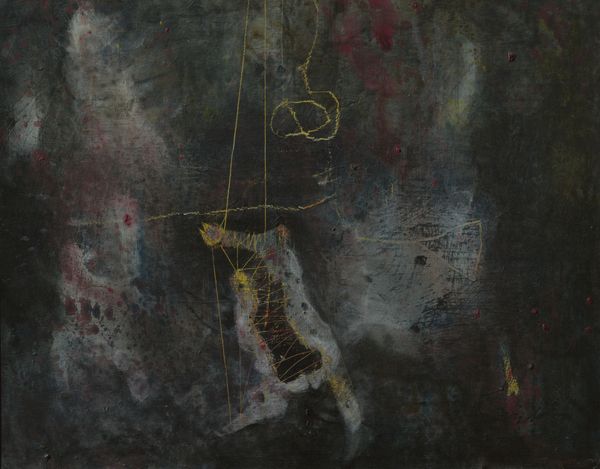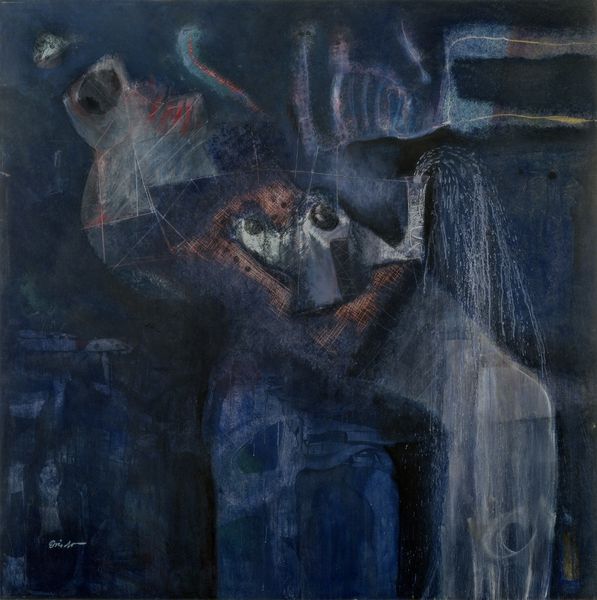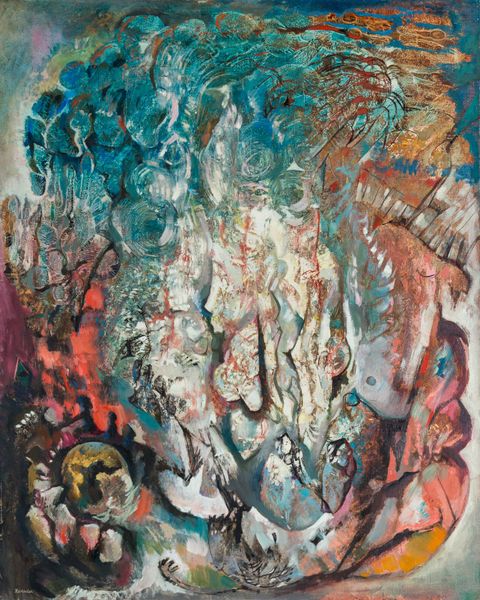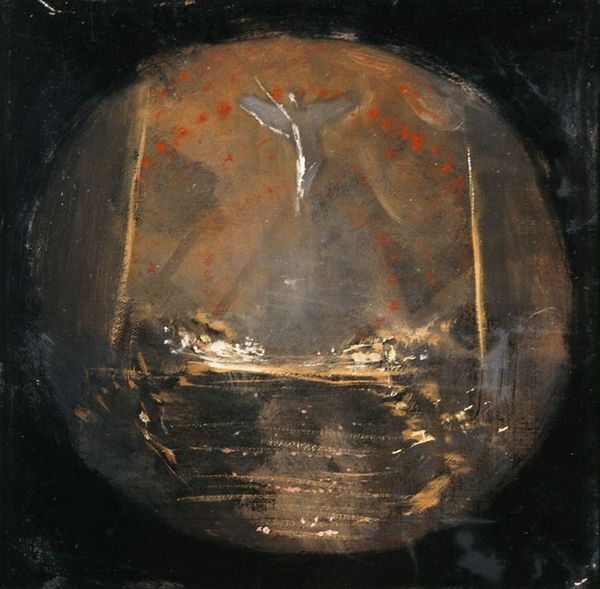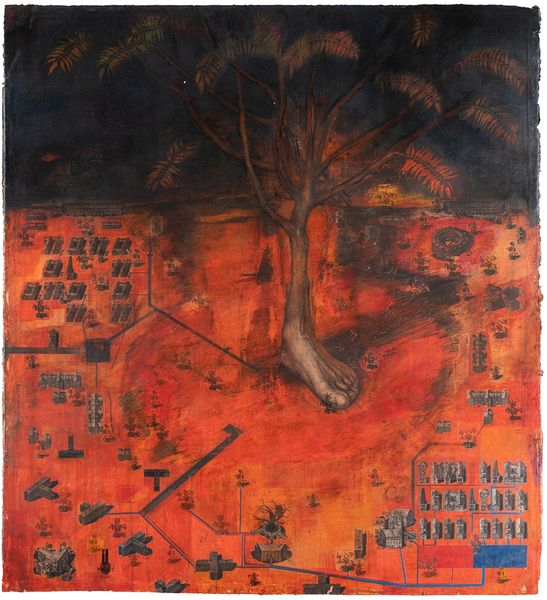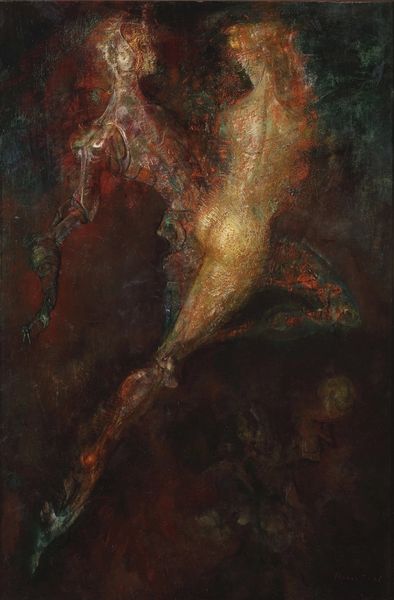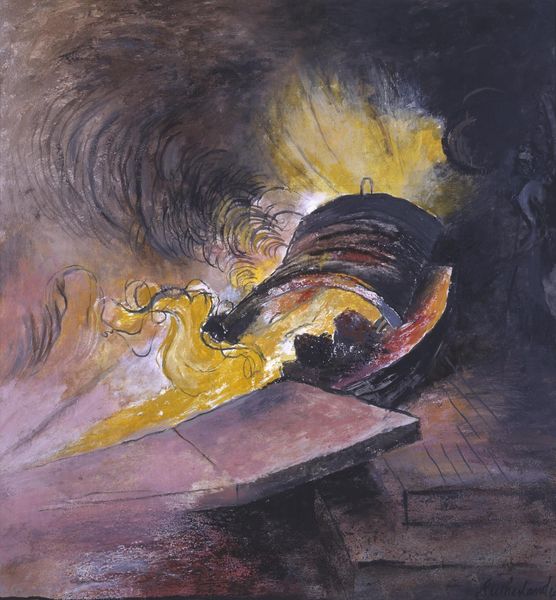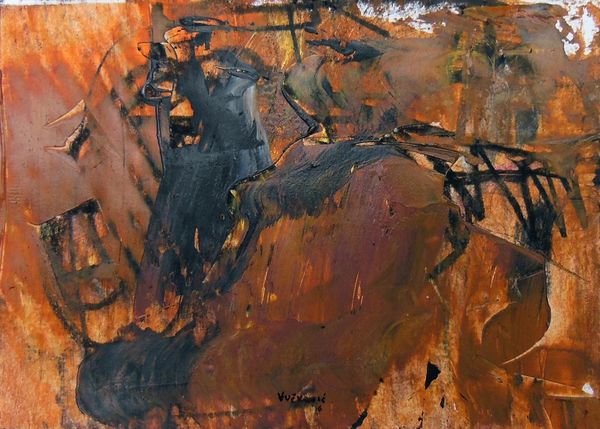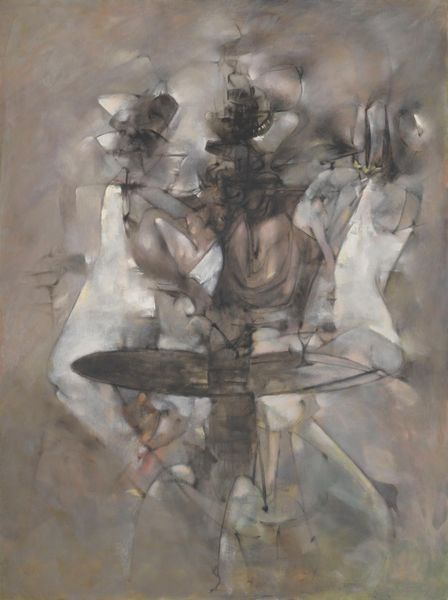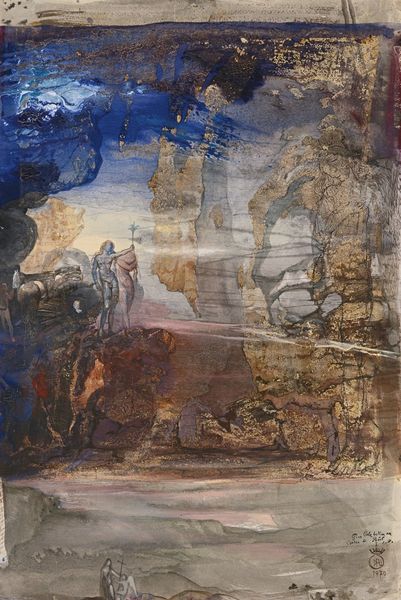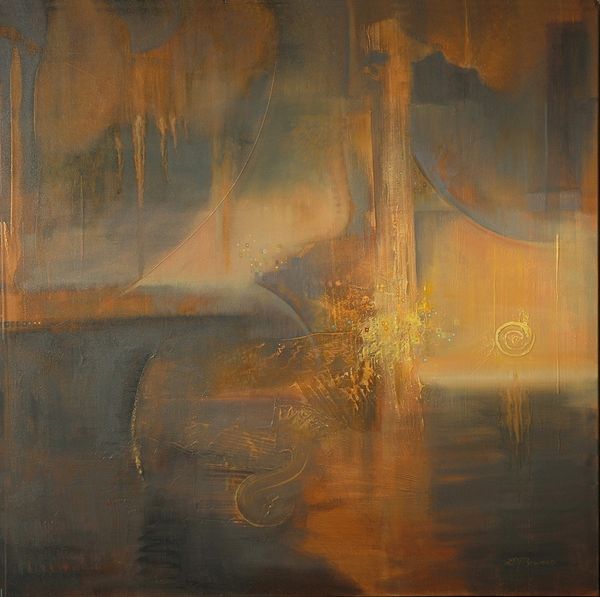
Copyright: David Lynch,Fair Use
Curator: Here we have David Lynch's "A Figure Witnessing the Orchestration of Time" from 1990, primarily an oil-paint and matter-painting on canvas. Editor: My first impression is… murky. Like looking through swamp water. A really dark palette. I notice that impasto is deployed, but it struggles to offer some hope with its textural materiality. Curator: Murky, yes, I'd agree, that resonates strongly with his style. But there’s also a really fascinating tension at play. Figurative elements battle against this abstract expressionist approach. Editor: Speaking of abstraction, the materials used… the oil paint combined with whatever 'matter' comprises those textures… it creates a sense of… of primordial sludge. An unsettling origin. The use of such seemingly cheap materials is thought-provoking. There is labor condensed into the materials which reflects on the labor of film-making. Curator: Absolutely. This wasn't Lynch's primary creative avenue, but his paintings very much embody that same disquiet, and a particular sensitivity. The figure is witnessing this sort of grand… orchestrated moment. Are they observing the construction of the world? Or its decay? I lean towards decay, in this instance. It is haunting in some ways. The wire structure adds to this unease. Like a warped satellite. Editor: And it is all about layers. You know, Lynch's use of found objects and this combination with painting – he’s actively blurring that boundary between traditional painting and some kind of low-grade construction. I cannot say this looks especially carefully laboured, in the sense that you or I would imagine oil painting. What it shows is his concern with process and transformation. Curator: Very much so, process, I think that sums it up well. We are all both witness and agent in these moments of temporal flux. "A Figure Witnessing the Orchestration of Time" encourages that moment of recognition of the strangeness, or the marvel, in those everyday intersections. Editor: Yes, the work makes one ask questions about value. Value of time, value of materials. Lynch uses cheap means to access some profoundly dark imaginings, while elevating it above something like horror through gesture and form. It becomes... valuable through a different logic.
Comments
No comments
Be the first to comment and join the conversation on the ultimate creative platform.
